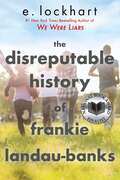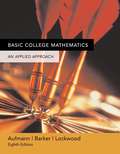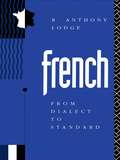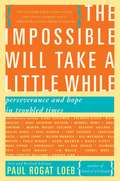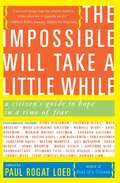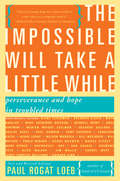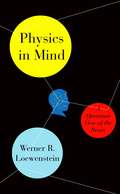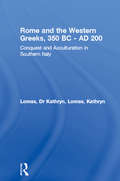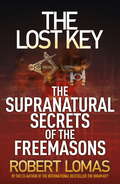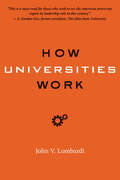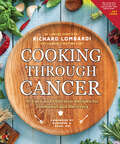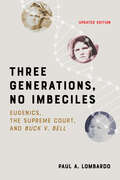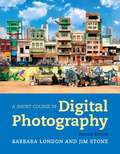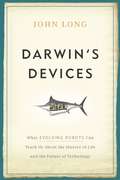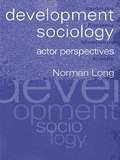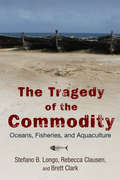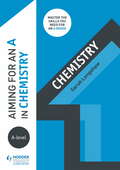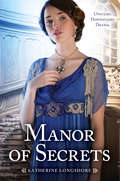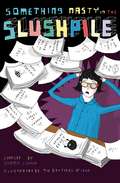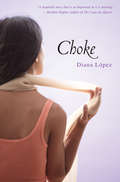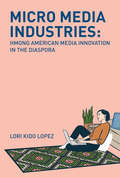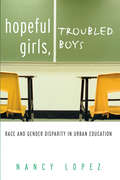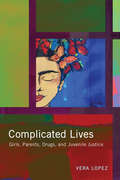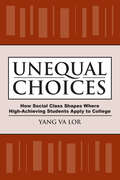- Table View
- List View
The Disreputable History of Frankie Landau-Banks
by E. LockhartThe hilarious and razor-sharp story of how one girl went from geek to patriarchy-smashing criminal mastermind in two short years, from the #1 New York Times bestselling author of We Were Liars and Genuine Fraud.Frankie Landau-Banks at age 14:Debate Club.Her father's "bunny rabbit."A mildly geeky girl attending a highly competitive boarding school.Frankie Landau-Banks at age 15:A knockout figure.A sharp tongue.A chip on her shoulder.And a gorgeous new senior boyfriend: the supremely goofy, word-obsessed Matthew Livingston.Frankie Landau-Banks. No longer the kind of girl to take "no" for an answer.Especially when "no" means she's excluded from her boyfriend's all-male secret society.Not when her ex-boyfriend shows up in the strangest of places.Not when she knows she's smarter than any of them.When she knows Matthew's lying to her.And when there are so many, many pranks to be done.Frankie Landau-Banks, at age 16:Possibly a criminal mastermind.This is the story of how she got that way.* National Book Award finalist ** Printz Honor * --
Basic College Mathematics: An Applied Approach (Eighth Edition)
by Joanne S. Lockwood Vernon C. Barker Richard N. AufmannWith its complete, interactive, objective-based approach, Basic College Mathematics is the best-seller in this market. The Eighth Edition provides mathematically sound and comprehensive coverage of the topics considered essential in a basic college math course. Furthermore, the Instructor's Annotated Edition features a comprehensive selection of instructor support material. The Aufmann Interactive Method is incorporated throughout the text, ensuring that students interact with and master the concepts as they are presented. This approach is especially important in the context of rapidly growing distance-learning and self-paced laboratory situations.
French: From Dialect to Standard
by R. Anthony LodgeWritten as a text, this book looks at the external history of French from its Latin origins to the present day through some of the analytical frameworks developed by contemporary sociolinguistics. French is one of the most highly standardized of the world's languages and the author invites us to see the language as heterogenous, rather than a monolithic entity, using the model proposed by E. Haugen as a useful comparative grid to plot the development of standardization. After an introductory section which examines the dialectalization of Latin in Gaul, the four central chapters of the book are constructed around the basic processes invoved in standardization as identified by Haugen: the selection of norms, the elaboration of function, codification and acceptance. The concluding chapter deals with language variability and the wide gulf that has now developed between French used for formal purposes and that used in everyday speech, with particular reference to Occitan speaking regions. Emphasizing the ordinary speakers of the language, rather than the statesmen or great authors as agents of change, the book combines a traditional history of the language' approach with a sociolinguistic framework to provide a broad and comparative overview of the problem of language standardization.
The Impossible Will Take A Little While: Perseverance And Hope In Troubled Times
by Paul LoebWhat keeps us going when times get tough? How have the leaders and unsung heroes of world-changing political movements persevered in the face of cynicism, fear, and seemingly overwhelming odds? In The Impossible Will Take a Little While, they answer these questions in their own words, creating a conversation among some of the most visionary and eloquent voices of our times. <P> Ten years after his original edition, Paul Rogat Loeb has comprehensively updated this classic work on what it's like to go up against Goliath--whether South African apartheid, Mississippi segregation, Middle East dictatorships, or the corporations driving global climate change. Without sugarcoating the obstacles, these stories inspire the hope to keep moving forward. <P> Think of this book as a conversation among some of the most visionary and eloquent voices of our times--or any time. Contributors include Maya Angelou, Diane Ackerman, Marian Wright Edelman, Wael Ghonim, Václav Havel, Paul Hawken, Seamus Heaney, Jonathan Kozol, Tony Kushner, Audre Lorde, Nelson Mandela, Bill McKibben, Bill Moyers, Pablo Neruda, Mary Pipher, Arundhati Roy, Dan Savage, Desmond Tutu, Alice Walker, Cornel West, Terry Tempest Williams, and Howard Zinn
The Impossible Will Take a Little While: A Citizen's Guide to Hope in a Time of Fear
by Paul Rogat LoebIn The Impossible Will Take a Little While, a phrase borrowed from Billie Holliday, the editor of Soul of a Citizen brings together fifty stories and essays that range across nations, eras, wars, and political movements. Danusha Goska, an Indiana activist with a paralyzing physical disability, writes about overcoming political immobilization, drawing on her history with the Peace Corps and Mother Teresa. Vaclav Havel, the former president of the Czech Republic, finds value in seemingly doomed or futile actions taken by oppressed peoples. Rosemarie Freeney Harding recalls the music that sustained the civil rights movement, and Paxus Calta-Star recounts the powerful vignette of an 18-year-old who launched the overthrow of Bulgaria's dictatorship. Many of the essays are new, others classic works that continue to inspire. Together, these writers explore a path of heartfelt community involvement that leads beyond despair to compassion and hope. The voices collected in The Impossible Will Take a Little While will help keep us all working for a better world despite the obstacles.
The Impossible will Take a Little While: A Citizen's Guide to Hope in a Time of Fear
by Paul Rogat LoebWhat keeps us going when times get tough? How do we keep on working for a more humane world, no matter how hard it sometimes seems? In a time when our involvement has never been needed more, this anthology of political hope will help readers with the essential work of healing our communities, our nation, our planet--despite all odds. In THE IMPOSSIBLE WILL TAKE A LITTLE WHILE, a phrase borrowed from Billie Holliday, the editor of Soul of a Citizen brings together fifty stories and essays that range across nations, eras, wars, and political movements. Danusha Goska, an Indiana activist with a paralyzing physical disability, writes about overcoming political immobilization, drawing on her history with the Peace Corps and Mother Teresa. Vaclav Havel, the former president of the Czech Republic, finds value in seemingly doomed or futile actions taken by oppressed peoples. Rosemarie Freeney Harding recalls the music that sustained the civil rights movement, and Paxus Calta-Star recounts the powerful vignette of an 18-year-old who launched the overthrow of Bulgaria's dictatorship. Many of the essays are new, others classic works that continue to inspire. Together, these writers explore a path of heartfelt community involvement that leads beyond despair to compassion and hope. The voices collected in THE IMPOSSIBLE WILL TAKE A LITTLE WHILE will help keep us all working for a better world despite the obstacles.
Physics in Mind: A Quantum View of the Brain
by Werner R. LoewensteinNo one can escape a sense of awe when reflecting on the workings of the mind: we see, we hear, we feel, we are aware of the world around us. But what is the mind? What do we mean when we say we are "aware” of something? What is this peculiar state in our heads, at once utterly familiar and bewilderingly mysterious, that we call awareness or consciousness? In Physics in Mind, eminent biophysicist Werner R. Loewenstein argues that to answer these questions, we must first understand the physical mechanisms that underlie the workings of the mind. And so begins an exhilarating journey along the sensory data stream of the brain, which shows how our most complex organ processes the vast amounts of information coming in through our senses to create a coherent, meaningful picture of the world. Bringing information theory to bear on recent advances in the neurosciences, Loewenstein reveals a web of immense computational power inside the brain. He introduces the revolutionary idea that quantum mechanics could be fundamental to how our minds almost instantaneously deal with staggering amounts of information, as in the case of the information streaming through our eyes. Combining cutting-edge research in neuroscience and physics, Loewenstein presents an ambitious hypothesis about the parallel processing of sensory information that is the heart, hub, and pivot of the cognitive brain. Wide-ranging and brimming with insight, Physics in Mind breaks new ground in our understanding of how the mind works.
A Private Affair
by Lesley LokkoNo matter who you are, love comes at a price...Sam, the ugly duckling who grew into a swan. Now beautiful and wealthy, with a glittering career, no one can understand why she's still on her own. When she meets a handsome stranger on holiday, things finally seem to be falling into place... Meaghan, a true survivor. The teenage runaway who worked her way off the streets, she was swept off her feet by a young army officer, to live on the other side of the world, finally escaping the family she loathed...Dani, the beautiful misfit, desperately looking for daddy in all the wrong places, and finding instead a man who will teach her everything that is wrong and corrupt about love.And Abby, the model wife, everything her husband and family could want and more, but never being herself. Until a dark secret threatens to pull her well-ordered life apart.
Rome and the Western Greeks, 350 BC - AD 200: Conquest and Acculturation in Southern Italy
by Kathryn Lomas Dr Kathryn LomasThe history of the Greek cities of Italy during the period of Roman conquest and under Roman rule form a fascinating case study of the processes of Roman expansion and assimilation and of Greek reactions to the presence of Rome. This book reassesses the role of Magna Graecia in Roman Italy and illuminates the mechanisms of Roman control and the process of acculturation. Specifically it explores the role of the Greek cities of Italy as cultural mediators between the Greek and Roman worlds. It is the first full length treatment of the region as a whole in English for over thirty years.
The Lost Key: The Supranatural Secrets of the Freemasons
by Robert LomasRobert Lomas is the bestselling co-author of The Hiram Key and other international bestsellers on Freemasonic mysteries. Many say he is the model for Dan Brown's hero, Robert Langdon.The Lost Key contains revelations that only an initiate of the highest orders of esoteric Freemasonry is in a position to make. Here is the truth behind the hints in Dan Brown's The Lost Symbol that Freemasonry is concerned to reawaken the hidden potentialities and powers of the human mind.The thrilling narrative of this new book follows a candidate for initiation as he rises through the different grades of initiation, taking part in ceremonies that are sometimes terrifying but always revealing of new knowledge and presenting new mysteries which will only be solved when the next stage of initiation has been achieved. Dramatic episodes include the re-enacting of an ancient murder from 3,000 years ago in full gory detail, lowering the candidate on the end of a rope into a dark vault under the floor of the temple, holding a dagger to the candidates naked breast, and making the candidate attend his own funeral.In the secret teachings revealed to some high-level initiates, there is a type of instruction which seems curiously similar to religious and mystical teachings. Astrology, angels, chakras and the powers of the mind to operate independently of the body, such as in remote viewing, are all a part of Freemasonic lore.Robert Lomas is both a physicist - he teaches physics at Bradford Unversity - and a Freemason. Here he reveals to a wider public and also explains these secret teachings for the first time. He shows that while they are dismissed as superstitious by campaigners for atheism such as Richard Dawkins, they are very much part of the strange, paradoxical world opened up by the latest thinking in quantum physics. This is why he prefers to call them 'Supranatural'.
How Universities Work (Higher Ed Leadership Essentials)
by John V. LombardiThe single best description of the inside workings of contemporary universities.Witty and insightful, How Universities Work is destined to be an essential handbook for anyone wanting to understand universities in the United States. John V. Lombardi gives readers an insider’s view of the academy, describing the structure, logic, dynamics, and operational styles of both public and private institutions of higher education. Lombardi defines and describes all the bits and pieces that compose a university with remarkable economy—from budgeting systems to tenure, from the library to the athletic field. Although focused on research universities, much of the discussion applies to other types of post-secondary institutions. Ideal for students, this book will form a solid foundation for courses in higher education, but it will also be a welcome addition to faculty and administrators’ personal libraries.
Cooking Through Cancer: 90 Easy and Delicious Recipes for Treatment and Recovery
by Richard LombardiA cancer survivor, Richard Lombardi, the Cancer Fighting Chef, shares the easy and nutritious recipes that got him through his cancer treatment.
Three Generations, No Imbeciles: Eugenics, the Supreme Court, and Buck v. Bell
by Paul A. LombardoThis updated edition includes a new afterword that identifies the role the Buck story plays in the Supreme Court's review of emerging state laws that seek to limit access to abortion."Three generations of imbeciles are enough." Few lines from U.S. Supreme Court opinions are as memorable as this declaration by Justice Oliver Wendell Holmes Jr. in the landmark 1927 case Buck v. Bell. The ruling allowed states to forcibly sterilize residents in order to prevent "feebleminded and socially inadequate" people from having children. It is the only time the Supreme Court endorsed surgery as a tool of government policy. Though Buck set the stage for more than sixty thousand involuntary sterilizations in the United States and was cited at the Nuremberg trials in defense of Nazi sterilization experiments, it has never been overturned. It has been more than a decade since Paul A. Lombardo's classic Three Generations, No Imbeciles first exposed the Buck case's fraudulent roots. During that time, several of the remaining twentieth-century eugenic sterilization statutes have finally been repealed, and reparations to sterilization survivors have been paid in two states. Discussion of the Buck case has once again engendered controversy in the courts. The Wisconsin Supreme Court invoked Buck most recently in a debate over the power of the state to enact restrictions on citizens and businesses during the COVID-19 crisis, and the US Supreme Court cited Three Generations, No Imbeciles in arguments over the newest state laws seeking to limit access to abortion. This updated edition collects and analyzes information related to events and trends discussed in the earlier volume and includes a completely new afterword, "Looking Back at Buck," that explains how the case remains a key feature of public discourse about disability, government power, and reproductive rights. It also presents restored copies of the letters of Carrie Buck and points readers to an online archive of legal documents, images, and other material relevant to the case. The book remains a key resource for law school faculties, legal and medical historians, and anyone with an interest in the history of reproduction in the United States."Startling."—Reason"Compelling and well-researched... Three Generations, No Imbeciles gives Carrie Buck's long-untold story the attention it deserves."—Harvard Law Review"Three Generations provides valuable, new, and timely revelations for students and professional scholars across many disciplines."—Disability Studies Quarterly"Meticulously detailed and researched history... this book is enjoyable, thought provoking, and troubling in equal measure. I highly recommend it."—Psychiatric Services
A Short Course in Digital Photography, 2nd Edition
by Barbara London Jim StoneFor introductory, one-semester courses devoted to digital photography. After a very successful first edition, this second edition returns with the most up-to-date industry knowledge. Modeled after the long-running and widely used A Short Course in Photography, a brief text which presents the medium entirely in its most updated form.
Darwin's Devices: What Evolving Robots Can Teach Us About the History of Life and the Future of Technology
by John LongWhat happens when we let robots play the game of life? The challenge of studying evolution is that the history of life is buried in the past--we can't witness the dramatic events that shaped the adaptations we see today. But biorobotics expert John Long has found an ingenious way to overcome this problem: he creates robots that look and behave like extinct animals, subjects them to evolutionary pressures, lets them compete for mates and resources, and mutates their 'genes'. In short, he lets robots play the game of life. In Darwin's Devices, Long tells the story of these evolving biorobots--how they came to be, and what they can teach us about the biology of living and extinct species. Evolving biorobots can replicate creatures that disappeared from the earth long ago, showing us in real time what happens in the face of unexpected environmental challenges. Biomechanically correct models of backbones functioning as part of an autonomous robot, for example, can help us understand why the first vertebrates evolved them. But the most impressive feature of these robots, as Long shows, is their ability to illustrate the power of evolution to solve difficult technological challenges autonomously--without human input regarding what a workable solution might be. Even a simple robot can create complex behavior, often learning or evolving greater intelligence than humans could possibly program. This remarkable idea could forever alter the face of engineering, design, and even warfare. An amazing tour through the workings of a fertile mind, Darwin's Devices will make you rethink everything you thought you knew about evolution, robot intelligence, and life itself.
Development Sociology: Actor Perspectives
by Norman LongIn this exciting and challenging work, Norman Long brings together years of work and thought in development studies to provide a key text for guiding future development research and practice. Using case studies and empirical material from Africa and Latin America, Development Sociology focuses on the theoretical and methodological foundations of an actor-oriented and social constructionist form of analysis. This style of analysis is opposed to the traditional structuralist/institutional analysis which is often applied in development studies. With an accessible mix of general debate, critical literature reviews and original case study materials this work covers a variety of key development issues. Among many important topics discussed, the author looks at commoditisation, small-scale enterprise and social capital, knowledge interfaces, networks and power, globalisation and localisation as well as policy formulation and planned intervention processes. This book should be read for its desire to pursue a form of analysis that helps us to understand better (and more realistically) the kinds of development interventions and social transformations that have characterised the second half of the twentieth century and will no doubt continue to characterise future development studies.
The Tragedy of the Commodity
by Stefano B. Longo Rebecca Clausen Brett ClarkAlthough humans have long depended on oceans and aquatic ecosystems for sustenance and trade, only recently has human influence on these resources dramatically increased, transforming and undermining oceanic environments throughout the world. Marine ecosystems are in a crisis that is global in scope, rapid in pace, and colossal in scale. In The Tragedy of the Commodity, sociologists Stefano B. Longo, Rebecca Clausen, and Brett Clark explore the role human influence plays in this crisis, highlighting the social and economic forces that are at the heart of this looming ecological problem. In a critique of the classic theory "the tragedy of the commons" by ecologist Garrett Hardin, the authors move beyond simplistic explanations--such as unrestrained self-interest or population growth--to argue that it is the commodification of aquatic resources that leads to the depletion of fisheries and the development of environmentally suspect means of aquaculture. To illustrate this argument, the book features two fascinating case studies--the thousand-year history of the bluefin tuna fishery in the Mediterranean and the massive Pacific salmon fishery. Longo, Clausen, and Clark describe how new fishing technologies, transformations in ships and storage capacities, and the expansion of seafood markets combined to alter radically and permanently these crucial ecosystems. In doing so, the authors underscore how the particular organization of social production contributes to ecological degradation and an increase in the pressures placed upon the ocean. The authors highlight the historical, political, economic, and cultural forces that shape how we interact with the larger biophysical world. A path-breaking analysis of overfishing, The Tragedy of the Commodity yields insight into issues such as deforestation, biodiversity loss, pollution, and climate change.
Aiming for an A in A-level Chemistry
by Sarah LongshawExam Board: AQA, Edexcel, CCEA, OCR, WJEC EduqasLevel: A-levelSubject: ChemistryFirst teaching: September 2015First exams: Summer 2017 Master the skills you need to set yourself apart and hit the highest grades; this year-round course companion develops the higher-order thinking skills that top-achieving students possess, providing step-by-step guidance, examples and tips for getting an A grade.Written by experienced author and teacher Sarah Longshaw, Aiming for an A in A-level Chemistry:- Helps you develop the 'A grade skills' of analysis, evaluation, creation and application- Takes you step by step through specific skills you need to master in A-level Chemistry, including scientific reading, quantitative and practical skills, so you can apply these skills and approach each exam question as an A/A* candidate- Clearly shows how to move up the grades with sample responses annotated to highlight the key features of A/A* answers- Helps you practise to achieve the levels expected of top-performing students, using in-class or homework activities and further reading tasks that stretch towards university-level study- Perfects exam technique through practical tips and examples of common pitfalls to avoid - Cultivates effective revision habits for success, with tips and strategies for producing and using revision resources- Supports all exam boards, outlining the Assessment Objectives for reaching the higher levels under the AQA, Edexcel, OCR, WJEC/Eduqas and CCEA specifications.
Manor of Secrets
by Katherine LongshoreThe year is 1911. And at The Manor, nothing is as it seems . . .Lady Charlotte Edmonds: Beautiful, wealthy, and sheltered, Charlotte feels suffocated by the strictures of upper-crust society. She longs to see the world beyond The Manor, to seek out high adventure. And most of all, romance. Janie Seward: Fiery, hardworking, and clever, Janie knows she can be more than just a kitchen maid. But she isn't sure she possesses the courage -- or the means -- to break free and follow her passions. Both Charlotte and Janie are ready for change. As their paths overlap in the gilded hallways and dark corridors of The Manor, rules are broken and secrets are revealed. Secrets that will alter the course of their lives. . . forever.
Something Nasty in the Slushpile
by Sammy LookerMost publishers keep a "slushpile" - the stack of unsolicited manuscripts which contains a large percentage of preposterous or frightening book proposals, which might just conceal that one jewel of a bestseller or classic novel lying near the bottom. Authors discovered via the slush pile include Roddy Doyle, J. K. Rowling and Philip Roth. Stephenie Meyer sent 15 query letters about her teenage-vampire saga and got nearly 10 rejection letters; one even arrived after she signed with an agent and received a three-book deal from Little, Brown. Sadly though, these are the exceptions...Written by a reader with over a decade of slush pile experience, Something Nasty in the Slushpile takes a tour through the 'do's and 'don't's of book proposal, including many examples of hilarious, misguided and plain weird approaches. The contents include: Famous first lines:After ten books of criticism, I am turning my attention to a subject close to my heart, the illustrated story of my own life ... I would have e-mailed you, but I am not allowed access to such facilities as I have just been sectioned. I should be out soon. Barmy USPs:It's like a British male version of Eat, Pray, Love. But less shrill and more believable. There are echoes of Paul Theroux and parallels with The Alchemist and SiddharthaMy book is just about me, just an ordinary 'Jo Bloggs' chipping away relentlessly at the big roadblocks put in my way ...How not to respond to constructive criticism:Dear so-called publisher...I have shown my manuscript to my spiritual guide and he agrees that you are utterly wrong...
Choke
by Diana LopezA heartfelt novel about the disturbing "choking game" trend -- and one girl's struggle for self-acceptance.If she could -- if her parents would let her -- eighth-grader Windy would change everything about herself. She'd get highlights in her hair, a new wardrobe; she'd wear makeup. But nothing ever changes. The mean girls at school are still mean, and Windy's best friend Elena is still more interested in making up words than talking about boys. And then one day, Windy gets the change she's been looking for. New girl Nina -- impossibly cool, confident, and not afraid of anyone -- starts hanging out with Windy! Nina even wants to be "breath sisters." Windy isn't sure what that means, exactly, but she knows she wants to find out. It sounds even better than a BFF. Windy is right, at first. Being a breath sister gains her a whole new set of friends, girls she feels closer to and cooler with than anyone else. But her inclusion in the new crowd comes at a dangerous price. Windy wants to change everything about her life ... but is she really willing to give up everything in the process?
Micro Media Industries: Hmong American Media Innovation in the Diaspora
by Lori Kido LopezWith the rise of digital tools used for media entrepreneurship, media outlets staffed by only one or two individuals and targeted to niche and super-niche audiences are developing across a wide range of platforms. Minority communities such as immigrants and refugees have long been pioneers in this space, operating ethnic media outlets with limited staff and funding to produce content that is relevant and accessible to their specific community. Micro Media Industries explores the specific case of Hmong American media, showing how an extremely small population can maintain a robust and thriving media ecology in spite of resource limitations and an inability to scale up. Based on six years of fieldwork in Hmong American communities in Wisconsin, Minnesota, and California, it analyzes the unique opportunities and challenges facing Hmong newspapers, radio, television, podcasts, YouTube, social media, and other emerging platforms. It argues that micro media industries, rather than being dismissed or trivialized, ought to be held up as models of media innovation that can counter the increasing power of mainstream media.
Hopeful Girls, Troubled Boys: Race and Gender Disparity in Urban Education
by Nancy LopezThis book is an ethnographic study of Carribean youth in New York City to help explain how and why schools and cities are failing boys of color.
Complicated Lives: Girls, Parents, Drugs, and Juvenile Justice
by Vera LopezComplicated Lives focuses on the lives of sixty-five drug-using girls in the juvenile justice system (living in group homes, a residential treatment center, and a youth correctional facility) who grew up in families characterized by parental drug use, violence, and child maltreatment. Vera Lopez situates girls’ relationships with parents who fail to live up to idealized parenting norms and examines how these relationships change over time, and ultimately contribute to the girls’ future drug use and involvement in the justice system. While Lopez’s subjects express concerns and doubt in their chances for success, Lopez provides an optimistic prescription for reform and improvement of the lives of these young women and presents a number of suggestions ranging from enhanced cultural competency training for all juvenile justice professionals to developing stronger collaborations between youth and adult serving systems and agencies.
Unequal Choices: How Social Class Shapes Where High-Achieving Students Apply to College (The American Campus)
by Yang Va LorHigh-achieving students from socioeconomically disadvantaged backgrounds are more likely to end up at less selective institutions compared to their socioeconomically advantaged peers with similar academic qualifications. A key reason for this is that few highly able, socioeconomically disadvantaged students apply to selective institutions in the first place. In Unequal Choices, Yang Va Lor examines the college application choices of high-achieving students, looking closely at the ways the larger contexts of family, school, and community influence their decisions. For students today, contexts like high schools and college preparation programs shape the type of colleges that they deem appropriate, while family upbringing and personal experiences influence how far from home students imagine they can apply to college. Additionally, several mechanisms reinforce the reproduction of social inequality, showing how institutions and families of the middle and upper-middle class work to procure advantages by cultivating dispositions among their children for specific types of higher education opportunities.
